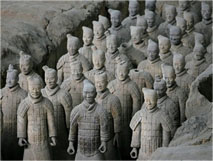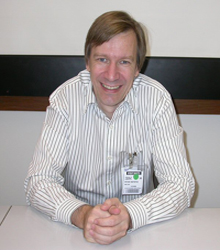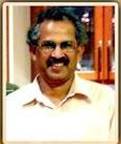Keynote Speakers
Speaker: Peter Hofstee
IBM Austin Research Laboratory
Title: The Big Deal about Big Data - a perspective from IBM Research
URL: http://en.wikipedia.org/wiki/Peter_Hofstee
IBM Austin Research Laboratory
Title: The Big Deal about Big Data - a perspective from IBM Research
URL: http://en.wikipedia.org/wiki/Peter_Hofstee
Abstract: Increasingly Big Data computing is being applied to some of the world's most difficult, most urgent problems. This talk will describe the nature of Big Data computing and present technology that has been developed to allow Big Data computing systems to address these challenges. This talk will detail trends in data characteristics and data sources. Growth in data volumes and sources have driven advances in indexing massive data collections and in supporting sophisticated analytics. Finally, methods of raising the level of interaction between the Big Data analytics systems and their users enable broader adoption of analytics on big data. This talk will show how IBM's Watson analytics system typifies this changing model of interaction.
Biography: H. Peter Hofstee currently works at the IBM Austin Research Laboratory on workload-optimized and hybrid systems. Peter has degrees in theoretical physics (MS, Rijks Universiteit Groningen, Netherlands) and computer science (PhD, California Inst. of Technology). At IBM Peter has worked on microprocessors, including the first CMOS processor to demonstrate GHz operation (1997), and he was the chief architect of the synergistic processor elements in the Cell Broadband Engine, known from its use in the Sony Playstation 3 and the Roadrunner supercomputer that first broke the 1 Petaflop Linpack benchmark. His interests include VLSI, multicore and heterogeneous microprocessor architecture, security, system design and programming. Peter has over 100 patents issued or pending.
Speaker: Chita R. Das
Director / Distinguished Professor, Pennsylvania State University
Title: PROM in Clouds: Exploring Performance Optimization in Clouds
URL: http://www.cse.psu.edu/people/das
Director / Distinguished Professor, Pennsylvania State University
Title: PROM in Clouds: Exploring Performance Optimization in Clouds
URL: http://www.cse.psu.edu/people/das
Abstract: Cloud computing is an emerging paradigm that has the potential to transform the future computing landscape across many application domains. Cloud computing offers an elastic, flexible and economical model, where both hardware and software resources can be leased from cloud providers on a pay-as-you-go manner, thereby avoiding the capital investment on procuring and maintaining large-scale infrastructures. Consequently, various cloud computing models like SaaS, PaaS, and IaaS are increasingly gaining prominence and have become attractive options to achieve high scalability, robust availability and easy access to immense pool of computing resources. However, a major roadblock in the wide-scale adoption and immaculate realization of clouds is the performance unpredictability of applications due to numerous factors like system scale, workload dynamism, virtualization overheads, sharing and interference across apportioned resources.
In this talk, I will discuss various performance related challenges and several issues that are critical for performance enhancements in clouds. I will summarize a subset of our ongoing efforts for alleviating the performance hurdles of cloud computing. In this context, two complementary scheduling techniques for enhancing cloud performance will be discussed. The first technique will highlight the importance of an important cloud workload property, called task placement constraints, and the second technique will summarize the impact of a fine-grained resource scheduling mechanism for data analytic systems like MapReduce. The talk will conclude with a simple performance model, called D-factor, for estimating the performance of cloud-hosted applications.
In this talk, I will discuss various performance related challenges and several issues that are critical for performance enhancements in clouds. I will summarize a subset of our ongoing efforts for alleviating the performance hurdles of cloud computing. In this context, two complementary scheduling techniques for enhancing cloud performance will be discussed. The first technique will highlight the importance of an important cloud workload property, called task placement constraints, and the second technique will summarize the impact of a fine-grained resource scheduling mechanism for data analytic systems like MapReduce. The talk will conclude with a simple performance model, called D-factor, for estimating the performance of cloud-hosted applications.
Biography: Chita Das is a Distinguished Professor of Computer Science and Engineering at the Pennsylvania State University. His main areas of interest include CMPs and manycore architectures, performance evaluation, fault-tolerant computing, and Clouds/datacenters. In particular, he has worked extensively in the area of design and analysis of interconnection networks/on-chip interconnects. He has published more than 200 papers in the above areas, has received several best paper awards, and has served on many program committees, and editorial boards. He is a Fellow of the IEEE.







